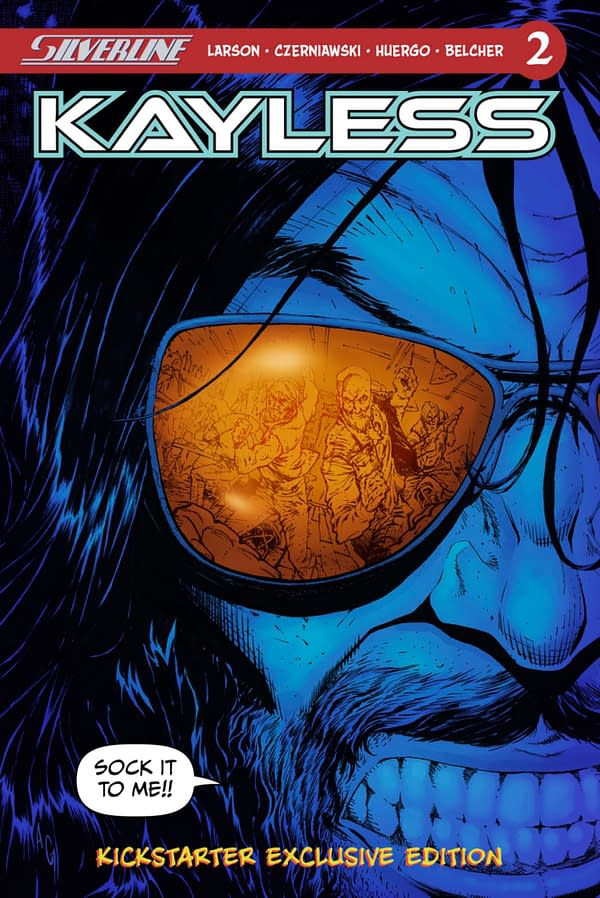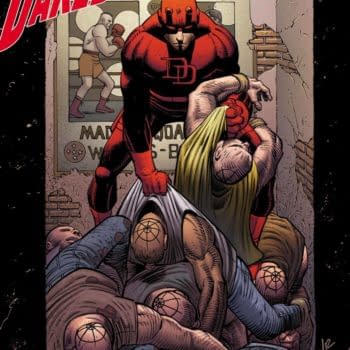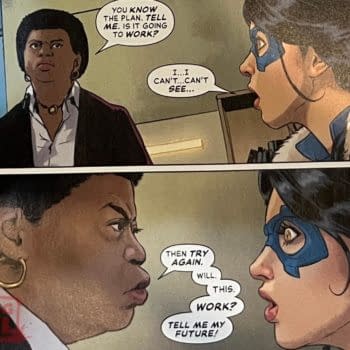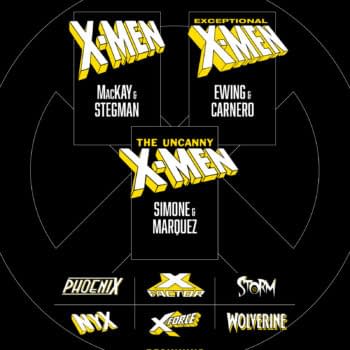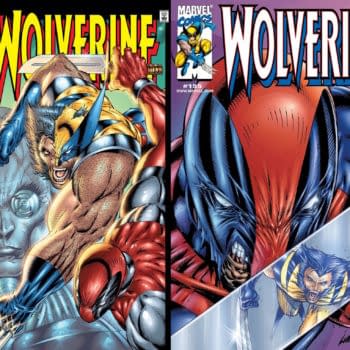Posted in: Comics | Tagged:
The Good, The Bad, and the Pricey; Screenwriting Vs Comic Writing
Brent T. Larson writes,
"The sun sets." This sentence convinced me to be a screenwriter.
My would-be first novel opened in a desert. After several pages, I realized I was sick of thinking up different ways to say "It was hot." And that sun just wouldn't set. I tried describing colors, the hot air (that's for sure), the melancholy … but what I really wanted to say was, "The sun sets," because setting suns are pretty. And kind of boring if you hang out too long.
I dropped my novel and signed up for a course on screenwriting. Frankly, I wanted someone else to figure out how to make that sun go down.
Twenty years later, I've written several feature and short film scripts, many of which have been produced. A while ago, a friend introduced me to the publisher of Silverline Comics, and I started learning the nuances of comic writing. Eventually we decided to publish my first comic book, Kayless. After running a successful Kickstarter for issue #1, we're now in the midst of launching issue #2.
Comic writing hits all the points I love about screenwriting—the visual artistry coupled with the nuts-and-bolts approach to storytelling. But it's not screenwriting. Here are some differences I learned pretty fast.
A screenplay is an exacting document. It has precise margins, its own language ("slug lines"; "wrylies"), and heaven help the fool who doesn't use 12-point Courier. It's not that Hollywood is a snobby bunch (well…), rather this format has a specific purpose. Industry standards assume one page of screenplay equals one minute of screen time. If it's greenlit it'll be read by executives, directors, agents, actors, maybe even the action figure people … all of them assuming a 120-page script will really be two hours when it's produced.
My comic scripts are different. I can be as descriptive as I want, in whatever font I want, for one reason—they only need to communicate to my artists and letterer. If I have a desert scene, I can suggest the artist capture a "Sergio Leone-esque" vibe, or I can say, "JUST DRAW A FREAKIN' SUN SETTING." I give the artist as much or as little license as I want.
And film production is a huge enterprise. I recently produced a film I wrote about a guy addicted to snack cakes, and how his friends help him destroy his oppressors. By the time we wrapped production, we had over 70 people involved, all bringing their own creativity to bear on the project.
That collaborative nature of filmmaking has its positives. It's gratifying to have different voices in the room who can take my idea and make it better. On the other hand, it's fun to have a project that's mine alone. My ideas for Kayless have been shared and critiqued by several friends, but ultimately it will always be my voice, my decisions, that see print. It's a thrill to have that kind of power over a story. Possibly narcissistic, too, although I prefer 'visionary.'
It's also easy to interpret that simplicity in financial terms. Filmmaking, even independent filmmaking, is expensive. Filmmakers thus have to find investors, which can cause all kinds of stress for those without what Kathy Bates in The Waterboy called "the social skills." And it adds more voices in terms of what the final film looks like.
If someone wants to write a comic, they just need to plan for printing costs, and find artists and letterers who fit their budget, which is much more within reach for us non-Rockefeller-types. Of course, financial help is readily available from interested parties. That's why I went with Kickstarter for Kayless. It was a great way for friends to be a part of what I was doing. Plus it gave me an idea of how many copies to print, driving those costs down further.
For me, that accessibility is the biggest draw of writing for comics. "Breaking in" is what you try to do in the film industry. But if you sit and write a good comic script, put a few bucks aside, and get your friends in on the action, you could have a finished product in your hands in no time. A pure creative endeavor to call your own … screenwriters would salivate at the prospect.
Brent T. Larson is the writer and producer of several award-winning films, and now is the writer and creator of Kayless, published by Siverline Comics, which is currently running the Kickstarter for issue #2.


